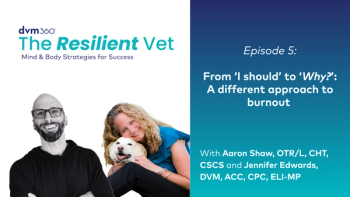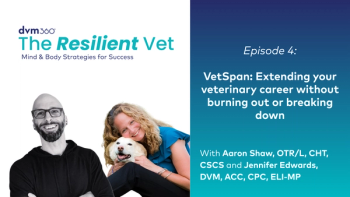
Feeling Like a Fraud? How to Overcome Imposter Syndrome
You may never have heard of it, but experts say the odds are high that you suffer from it. What is imposter syndrome, and how can you conquer your self-doubt and learn to enjoy your success?
About 70 percent of the population experiences some degree of
“Essentially, imposter syndrome is the belief that others will find out that we’re frauds, or we’re fake, or we somehow accidentally won that ribbon or got that job,” Amanda Landis-Hanna, DVM, senior manager of veterinary outreach for PetSmart Charities, said.
Imposter syndrome is more common among women than men, and with the veterinary profession topping the
RELATED:
- Three Confidence-Limiting Beliefs
- As a Leader, Don't 'Fake It 'Til You Make It'
Valerie Young, EdD — an internationally known speaker, author and expert on impostor syndrome — explains in her book “
Gaining a better understanding of which subgroup you may fall into may provide insight into how to rid yourself of the overwhelming feeling that you don’t deserve the level of success you’ve earned.
You might be The Expert if…
You need to know absolutely everything there is to about a project before starting it. You fear being exposed as inexperienced or unknowledgeable, so you’re constantly aiming to broaden your skillset — but doing so causes you to become scatterbrained and procrastinate on things that you shouldn’t.
What to Do: Don’t hoard knowledge. Instead, acquire a skill when you need it. Understand that it’s OK to ask for help, and try to share your wealth of knowledge with those around you whenever possible.
You might be The Natural Genius if…
You judge success based on your abilities as opposed to your efforts and gauge your competence on how quickly or easily you master a new skill or role. If you don’t get something right on the first try, you tend to beat yourself up about it.
What to Do: If you find that you can’t achieve your impossibly high standards, break each task into smaller, more bite-sized pieces. You’re a work in progress, just like everyone else, and you need to give yourself time to improve on certain things and in certain areas.
You might be The Perfectionist if…
People have called you a control freak. You are never satisfied with your performance and always tell yourself you could have done better. You doubt your abilities whenever you fail or underperform on anything.
What to Do: Nobody is perfect, and you need to learn how to celebrate your achievements to
You might be The Soloist if…
You never ask for help and outright refuse it if anyone offers. You call yourself a “rugged individualist” and feel that having someone help you with something reveals that you are a phony.
What to Do: There is no shame in asking for help — you don’t always need to prove your worth by finishing every project on your own. If you find yourself struggling, find someone who can offer guidance.
You might be The Superwoman/man if…
You have been called a workaholic. You don’t feel like you measure up to those around you, so you never stop moving. You crave validation, therefore you constantly push yourself harder. But your drive to succeed is causing you to feel burnt out and overloaded.
What to Do: Learn how to take constructive criticism less personally and try to move away from your need for external validation. Instead,
Newsletter
From exam room tips to practice management insights, get trusted veterinary news delivered straight to your inbox—subscribe to dvm360.






